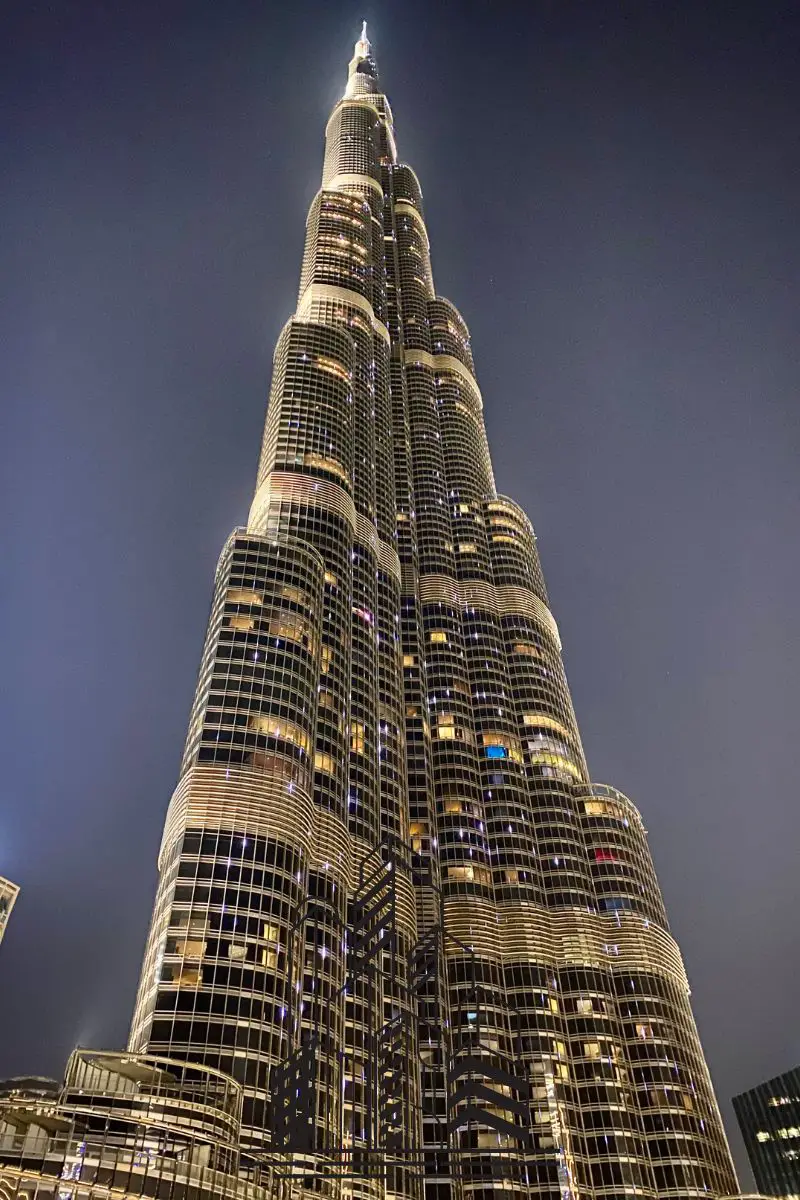Factors affecting the hotel industry. The hospitality industry is a vital sector of the economy, providing accommodation and services to millions of travelers worldwide. However, this industry faces a number of challenges due to the uncontrollable variables that significantly affect it. These variables are beyond the direct reach of hoteliers and can have a profound impact on hotel demand, competitiveness and profitability.

Table of Contents
Introduction
In this article, we will explore the uncontrollable variables affecting the hotel industry and how hoteliers can adapt to change. We will examine the economic, social and cultural, political and legal, and technological factors that influence the hospitality industry. Understanding these variables and their implications is fundamental for strategic decision making and to remain competitive in a dynamic and challenging environment.
Join us as we delve into each of these variables and discover how hoteliers can address these challenges and take advantage of emerging opportunities in the ever-evolving hospitality industry.
Economic Factors: Factors affecting the hospitality industry

Factors affecting the hotel industry, Economic factors play a key role in the hotel industry, as the demand for accommodation and services is closely related to the general economic situation. Below are some key aspects of the economic factors affecting the hotel industry:
- Economic cycles: The hotel industry tends to be cyclical and is influenced by the phases of economic expansion and contraction. During periods of economic growth, demand for travel and accommodation tends to increase, boosting hotel occupancy and revenues. Conversely, during recessions or periods of economic slowdown, demand may decrease, which negatively affects hotels.
- Consumer spending: The level of consumer spending is a crucial factor for the hotel industry. When consumers have more money available and confidence in the economy, they are more likely to take trips and seek quality accommodations. Spending on travel experiences, such as vacations or business trips, contributes directly to hotel demand.
- Investment in travel and tourism: Investment in tourism promotion and related infrastructure can have a significant impact on the hotel industry. Government and private efforts to attract tourists, improve connectivity and develop tourist destinations can generate an increase in demand for lodging.
- Currency fluctuations: Fluctuations in exchange rates can influence hotel demand, especially in international destinations. A strong currency can make travel more expensive for foreign tourists, which can negatively affect visitor arrivals and hotel occupancy.
- Price competition: In tough economic times, consumers may become more price sensitive and seek more affordable offers. This can lead to increased competition among hotels to offer competitive rates, which can affect profit margins and profitability.
It is essential for hoteliers to be attentive to economic factors and adjust their pricing, promotion and market segmentation strategies according to economic conditions in order to maximize demand and profitability. Adapting to economic cycles and understanding consumer spending trends are key to long-term success in the hospitality industry.
Social and cultural factors
Factors affecting the hotel industry, Social and cultural factors also have a significant impact on the hospitality industry, as they influence consumer preferences, needs and behaviors. Some key aspects of the social and cultural factors affecting the hotel industry are detailed below:
- Demographic changes: Changes in the demographic structure of the population, such as an aging society or an increase in the young population, may influence travel and accommodation preferences. Hoteliers must tailor their services and offer experiences that fit the needs of different demographic groups, such as accessibility services for seniors or youth-oriented services.
- Travel trends: Travel trends are constantly evolving and are shaped by social factors. For example, growing awareness of sustainability and responsible tourism has led to an increase in demand for eco-friendly accommodations and sustainable tourism experiences. Hoteliers need to be aware of these trends and adapt their offerings to meet the expectations of environmentally conscious travelers.
- Experience preferences: Modern travelers are looking for authentic and personalized experiences. Hotels that can offer unique activities, interaction with local culture and personalized services are more likely to attract guests. Cultural factors, such as gastronomy, art, music and local traditions, can also be differentiating elements for hotels in terms of attractiveness and competitiveness.
- Events and festivities: Special events, festivals and cultural celebrations can have a significant impact on hotel demand in certain locations. For example, hotels in popular tourist destinations during the holidays may experience an increase in occupancy and prices. Hoteliers must be prepared to take advantage of these opportunities and adapt their marketing and pricing strategies accordingly.
- Social media influence: Social media has transformed the way consumers research, share and make travel decisions. Online reviews and recommendations can influence the choice of a hotel. Hoteliers must have an active social media presence and manage their online reputation to attract and retain guests.
It is essential for hoteliers to understand evolving social and cultural factors in order to adapt their strategies and deliver relevant and engaging experiences. Staying on top of travel trends, understanding the preferences of different market segments and adapting to cultural events and holidays can help hotels stay competitive and meet the changing needs of travelers.
Political and Legal Factors
Political and legal factors play a crucial role in the hotel industry, as government regulations and policies can influence the operation and competitiveness of hotels. The following are some key aspects of the political and legal factors affecting the hotel industry:
- Visa and migration policies: Policies related to visas and migration can have a significant impact on foreign tourist inflows. Restrictive visa requirements or complicated procedures can deter international visitors, which directly affects demand for hotel accommodation. Changes in visa policies, whether more flexible or more restrictive, can have both positive and negative implications for the hotel industry.
- Labor regulations: Labor regulations, such as minimum wage laws, working hours, and employee rights, can influence hotel operating costs. Labor regulations and compliance requirements can have an impact on the cost structure and the ability of hotels to hire and retain staff.
- Taxes and Fees: Government taxes and charges, such as hotel room taxes or tourist charges, can affect the profitability of hotels. Higher tax rates can reduce profit margins and make hotels less competitive compared to other destinations.
- Health and safety regulations: Health and safety regulations are especially relevant in the hotel industry, as hotels are responsible for ensuring the safety of their guests. Fire safety regulations, food safety and hygiene standards are examples of aspects that hotels must comply with in order to operate safely and legally.
- Political stability and risk: The political stability of a country or region can have a direct impact on the demand for lodging. Political conflicts, instability or natural disasters can reduce the influx of tourists and affect the safety of hotels. Hoteliers must be prepared to deal with unexpected situations and take appropriate measures to ensure the safety of guests and staff.
It is key for hoteliers to understand and comply with the political and legal regulations applicable to their geographic location. In addition, they must be alert to changes in government policies and anticipate their impact on the hotel industry in order to adapt their operational and market strategies accordingly. Keeping abreast of political and legal factors is crucial for effective management and to ensure compliance in the hospitality industry.
Technological factors

Technology factors are playing an increasingly important role in the hospitality industry as technology continues to transform the way hotels operate and connect with their guests. The following are some key aspects of the technological factors affecting the hotel industry:
- Mobile apps and online booking: Mobile apps and online booking platforms have changed the way guests search for and book accommodation. Hotels should be present on popular booking platforms and develop their own mobile applications to facilitate the booking process and enhance the guest experience.
- Personalized guest experience: Technology enables hotels to collect and analyze data about their guests, allowing them to offer a more personalized experience. The use of data-driven customer relationship management (CRM) systems and loyalty programs enables hotels to tailor their services and offerings to individual guest preferences.
- Automation and self-service: Automation and self-service are gaining popularity in the hospitality industry. Self-service kiosks for check-in and check-out, the use of chatbots to provide customer service and smart room control systems are examples of how technology is simplifying and streamlining hotel operations.
- Smart in-room technology: Incorporating smart in-room technology, such as smart TVs, voice-controlled speakers and home automation systems, offers guests comfort and convenience. In addition, the implementation of Internet of Things (IoT) solutions can enable customization and remote control of different aspects of the room.
- Data analytics and digital marketing: Data analytics enables hotels to better understand their customers, identify trends and make informed decisions. In addition, digital marketing plays a key role in promoting hotels through social media, online content and search engine optimization (SEO) strategies.
Environmental factors
Environmental factors are becoming increasingly important in the hospitality industry, as there is a growing awareness of sustainability and environmental responsibility. Some key aspects of the environmental factors affecting the hotel industry are detailed below:
- Sustainability and resource management: Hotels are under pressure to reduce their environmental impact and adopt sustainable practices. This includes efficient energy and water management, waste reduction, the use of environmentally friendly materials and products, and the implementation of recycling programs. Hotels that adopt sustainable practices can enhance their brand image and attract a growing market segment of environmentally conscious travelers.
- Environmental certifications and standards: There are several environmental certifications and standards, such as LEED (Leadership in Energy and Environmental Design) and Green Key, that recognize and promote sustainable practices in the hotel industry. Hotels that obtain these certifications can demonstrate their commitment to the environment and differentiate themselves in the marketplace.
- Local impact and biodiversity conservation: Hotels located in environmentally sensitive areas, such as coastal zones or protected natural areas, must consider their impact on the local environment. It is important that hotels implement measures to conserve biodiversity, protect local ecosystems and minimize their environmental footprint.
- Sustainable tourism and social responsibility: The hotel industry has a key role to play in the development of sustainable tourism and in contributing to local communities. Hotels can collaborate with community projects, support local economic development and promote responsible tourism while respecting local traditions and cultures.
- Climate change and resilience: Climate change poses significant challenges for the hotel industry, such as extreme weather events and rising sea levels. Hotels should consider resilience and adaptation to climate change when designing and constructing new facilities, as well as implementing measures to reduce their contribution to greenhouse gas emissions.
It is essential for hoteliers to adopt sustainable and environmentally responsible practices, not only because of their impact on the environment, but also because more and more travelers value and seek environmentally friendly lodging options. Integrating sustainability into the business strategy can generate benefits for both hotels and the environment.
Bibliographic sources
- European American Journals. (n.d.). Factors Affecting Customer Satisfaction in the Hospitality Industry. Retrieved from EA Journals
- Makos, J. (2024, April 19). PESTLE Analysis for Hotel Industry (2024 Updated). Retrieved from PESTLE Analysis
- MDPI. (2023). Hospitality and Tourism Demand: Exploring Industry Shifts, Themes, and… Retrieved from MDPI
- Diva Portal. (n.d.). Factors Influencing Customers Satisfaction in Hospitality Industry… Retrieved from Diva Portal
- Springer. (n.d.). Trends in the Hospitality Industry: A Global Perspective. Retrieved from Springer Link
- Academia.edu. (n.d.). Inside the Rating Scores: A Multilevel Analysis of the Factors… Retrieved from Academia
- Academia.edu. (n.d.). A Study of Customer Satisfaction Factors and Employee… Retrieved from Academia
- Academia.edu. (n.d.). Factors Affecting Customer Satisfaction in the Hotel Industry. Retrieved from Academia
- Academia.edu. (n.d.). Examining Factors Affecting Hotel Efficiency Using DEA. Retrieved from Academia
- Scientific Research Publishing. (n.d.). Factors Affecting Consumer Choice in the Hotel Industry: A Case of… Retrieved from SCIRP
Other valuable resources from our business and hospitality blogs: Hotel Categories; Manager of a hotel duties; Objectives of a 5 star hotel; 5-diamond hotel vs 5-star; History of hospitality industry: origin and evolution of hotels; Hotel star rating; 1 Diamond Hotels; Classification of hotels by stars and diamonds; Classification of hotels by stars and diamonds; Diamond grading
External resource: Wikipedia
Editions 2019-20-21-22-23-25